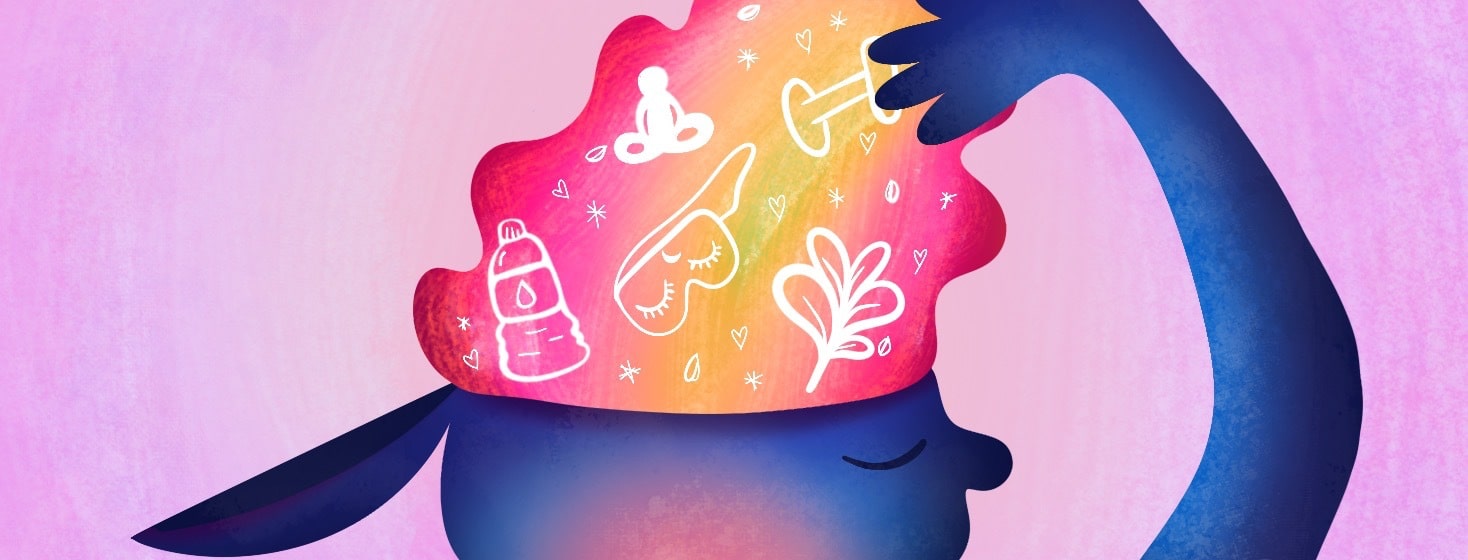5 Practical Tips to Manage Anxiety
Anxious much? Anxiety can be so overwhelming as you battle lupus. It’s something so many of us deal with. An emotion that can get the best of you at times and show the worst of fears within you. We may not be able to erase anxious thoughts and feelings completely, but we can minimize them. We can take action to get more centered and a little less anxious.
What is anxiety?
Anxiety can be defined as a feeling of dread or fear. A feeling of complete uneasiness. It can illicit some panic that can be difficult to control. Coupled with panic, phobias can be present. In addition, anxiety can interfere with daily activities and take things out of proportion to what’s happening.
Symptoms of anxiety
Symptoms can include nervous and tense feelings. Agitation, restlessness, insomnia, worry, and panic attacks can be the most common symptoms. Finding a healthy coping mechanism can notably minimize those symptoms.
Ways to ease anxiety
As I dealt with my anxiety, I knew it was important to find ways to combat it without medication. I wanted to make sure I was making lifestyle changes that taught me attainable coping skills.
Add brain food to your diet
I learned to fight my anxiety in different ways. Moreover, I began to think of how to get my brain healthy through the food I ate. It was important to me to get food to fuel my brain and body. I began eating more dark leafy greens and omega-3-packed food like salmon and nuts. Not to mention I added a rainbow of fruits and vegetables to help provide my brain with a balance of energy. I understood that what I was eating could directly affect how I felt mentally and physically.
Get more sleep
I read that more than 70 million Americans are sleep deprived, and over 61 percent of lupus warriors have reported they don’t get a night of refreshing sleep. That hit me kind of hard. I know when I am filled with anxiety and lupus pains, it makes it hard to sleep. Sleep deprivation was a definite culprit in creating anxiety within me. In light of that realization, I knew no amount of food or medication could combat my anxiety more than sleep. When I took a concerted action to create a sleep regimen, I noticed how my anxiety lessened.
Drink more water
There have been studies I have read that linked dehydration with anxiety. It makes sense to me because water keeps your circulation flowing smoothly. Water also aids in digestion and helps your body absorb nutrients in food. It made sense to drink more water and let my body ward off anxiety attacks. When I increased my water intake, I felt calmer. Sometimes, when I experienced anxiety, I drank a glass of water. This allowed me to 1) hydrate and 2) give me a focus other than the fear I was experiencing. Dehydration can affect your body and mind. Because I began to hydrate properly, it helped me manage my anxiety.
Get moving
Movement for me is medicine. I know any exercise helps me manage my feelings and decreases stress and anxiety. High or low impact helps me release and provides me with an endorphin high. Since I was a former stellar athlete, I went back to basics. Increasing my endorphins became the therapy I needed.
Mindfulness practices
Finally, I had to deal with my mind. Pre-lupus I knew the importance of being mindful to deal with anxiety and stress. I work hard to keep what is put in my mind, and I mindfully move daily. I use meditation to keep my anxiety down. It helps to keep me centered and change my focus. With this in mind, I will stop and breathe to combat anxiety-ridden thoughts and feelings.
Anxious much?
Are you dealing with anxious thoughts and feelings? It’s important to begin finding coping skills to help combat it. As if dealing with lupus wasn’t enough, here comes the anxiety to piggyback and make it more difficult. In the long run, you can be strong and find what works for you to help decrease anxiety in your life. Remember, there is nothing wrong with you, as anxiety is normal. It’s not the greatest feeling, but lifestyle changes can dramatically help decrease anxiety attacks. Ultimately it is up to you to make positive choices that will help in all areas of your life.

Join the conversation